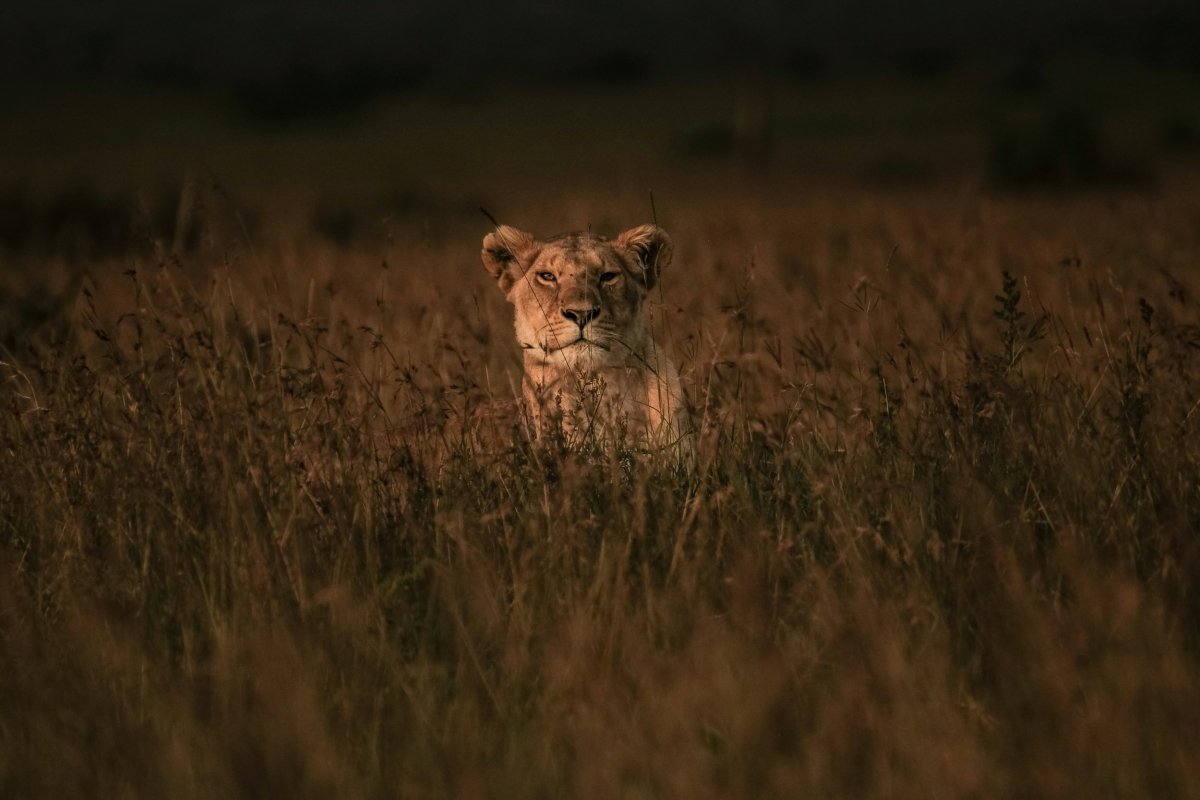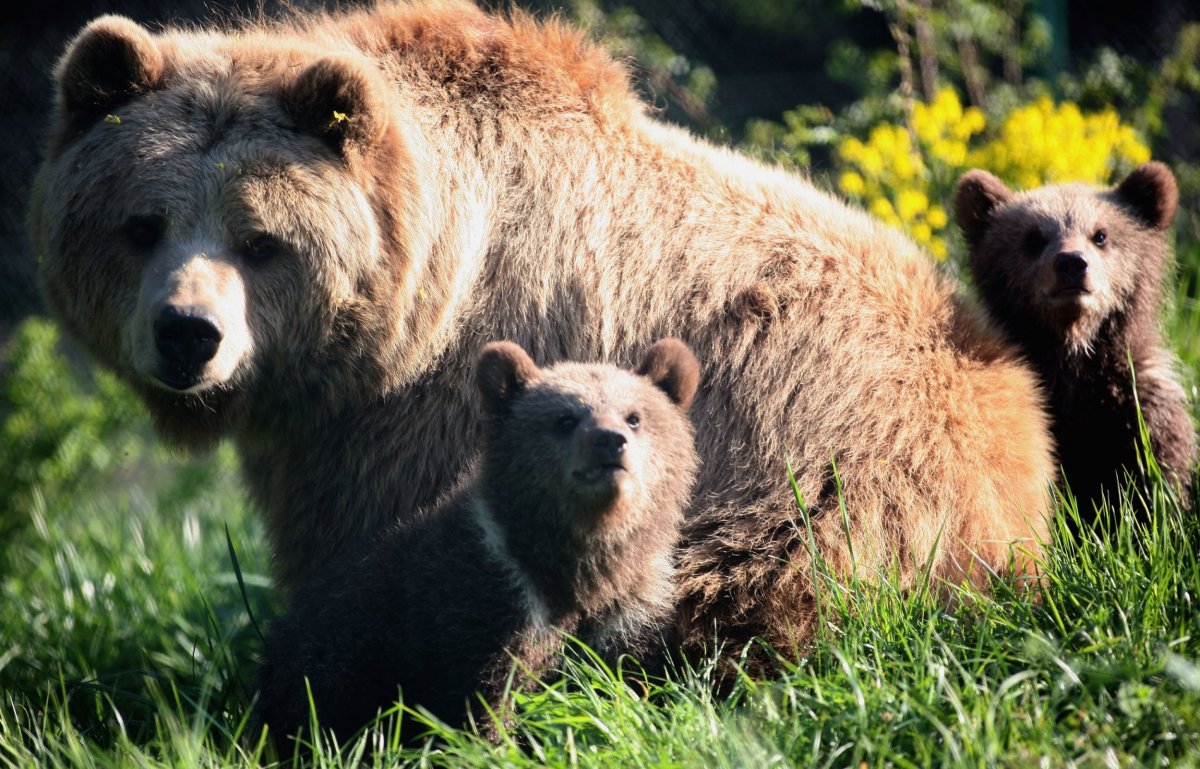An animal encounter turned deadly earlier this week when lions devoured three poachers who broke into a game reserve to hunt rhinos. The lions left only the men's shoes, hunting equipment, a skull and a bit of a pelvis, but the reserve's owner said they wouldn't be killed.
While not common, animals will attack humans to protect themselves or their young and guard their territory. In a study of animal attacks on humans between 1955 and 2014, half were the result of the human victim's ill-advised behavior.
"Half of the attacks could have probably been avoided if people had done some pretty simple things," study contributor and University of Calgary researcher Stephen Herrero told the Huffington Post.
Investigators don't know the reason for the lion attack, but the grisly aftermath confirms what wildlife experts often repeat: keep your distance from wild animals.

Defense Against Hunters
An elephant trampled a man who planned to hunt it in August 2017.
Jose Montalvo of Argentina was on a hunting trip in Namibia and attempted to find a spot to aim and shoot at a group of elephants when one of them charged and crushed Montalvo. Elephant hunting is legal in Namibia, which allowed hunters to export 180 tusks from their kills in 2017.
Months earlier, a notable South African big game hunter was killed by a falling elephant shot moments before by another hunter.
Supporters of trophy hunting say it actually incentivizes conservation if the revenue goes back to supporting species and human populations who share habitats so that the poor won't poach them. Still, those conservation programs are typically poorly managed and rarely provide villagers with substantial funds, Adam Cruise wrote in National Geographic, and Namibia in particular has received criticism for exchanging elephant hunting permits for political support.
Marking Their Territory
As formerly threatened populations recover thanks to bolstered conservation efforts, more predators are living and hunting in the wild just as more people are exploring it with little-to-no idea of what constitutes risky behavior.
A woman who took a late-night swim at an Australian beach notorious for its crocodiles was killed by one that pulled her under the surface of the water in 2016. Local parliament member Warren Entsch criticized her decision and worried it would create a backlash against the reptile.
"You can't legislate against human stupidity," local parliament member Warren Entsch told the Telegraph.
The once-threatened Australian crocodile population made a remarkable recovery after conservation laws were enacted in the 1970s, and it's reclaimed its habitat even after humans began to populate the croc's land.
As their habitats are impeded by human development, animal-human encounters are on the rise. Animals are sometimes forced to search for food in areas co-opted by humans when roads and buildings invade their former territory.
A Seattle cyclist killed by a starving cougar in May marked a rare instance of an unprovoked animal attack, though scientists later determined the animal was severely underweight. Unhealthy big cats are more likely to pursue prey they normally wouldn't during daytime hours they normally stay in the shadows, biologist Mark Elbroch told National Geographic.
The big cat has only killed about 25 people since the early 20th century, but it's been spotted more frequently as its population numbers have climbed.
"We can't just expect the cats to know the rules that we have created and they should follow," he said.

Protective Parents
Animal parents nearly always fight to protect their young, even when they're adopted—or plastic. Two male swans attacked swimmers in an Austrian lake who they believed threatened a nest of plastic cup "eggs." The pair was forcibly removed from the lake after the attack that sent several victims to the hospital.
When the attacker is an apex predator, the consequences are usually fatal. In August 2015, an experienced hiker and former Yellowstone employee was killed and partially eaten by a female grizzly bear with her two cubs. The attack was "puzzling," Yellowstone officials said, since the man wore no bear repellant spray and hiked alone even though he knew the proper safety precautions. His death was only the eighth bear killing in the park's history.
Bears usually aren't euthanized when they attack humans in self-defense or to protect their young, but park officials put the bear down when they found she had fed on and covered the remains of the man's body. Her cubs were transferred to a zoo, where they won't be taught to feed on humans.
"If a bear consumes an individual, it's not allowed to remain in the population," park spokeswoman Amy Bartlett told BBC. "It's not a risk we're willing to take."
Uncommon Knowledge
Newsweek is committed to challenging conventional wisdom and finding connections in the search for common ground.
Newsweek is committed to challenging conventional wisdom and finding connections in the search for common ground.
About the writer
Scottie is a Newsweek science fellow and student at the University of Florida. Her work has appeared in Women's Health, the Gainesville ... Read more
To read how Newsweek uses AI as a newsroom tool, Click here.








